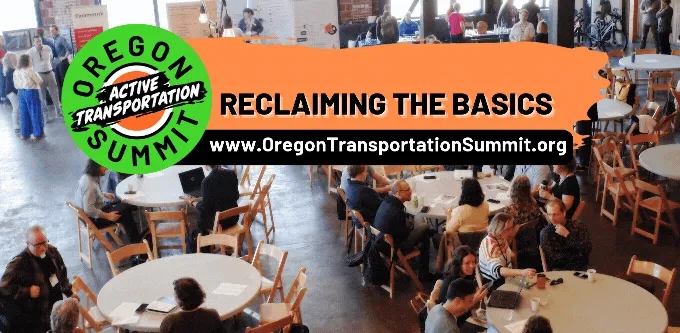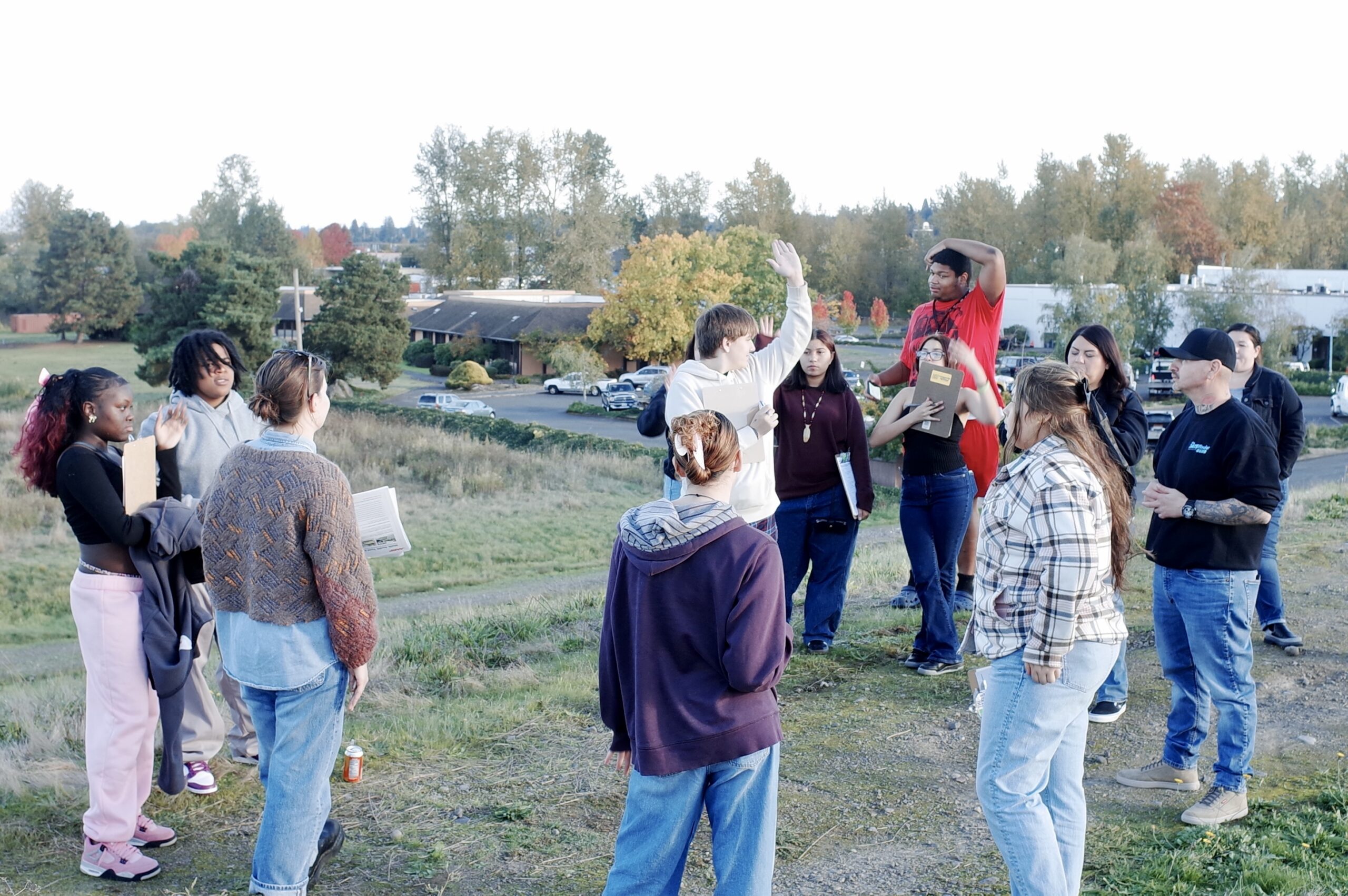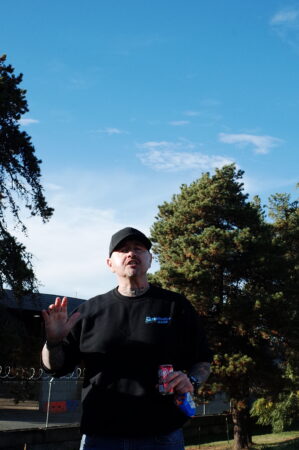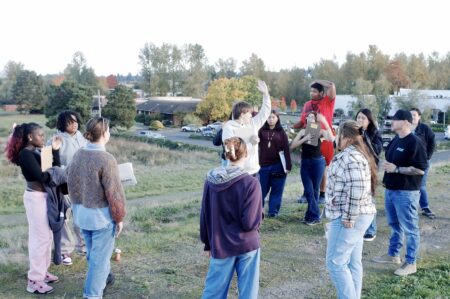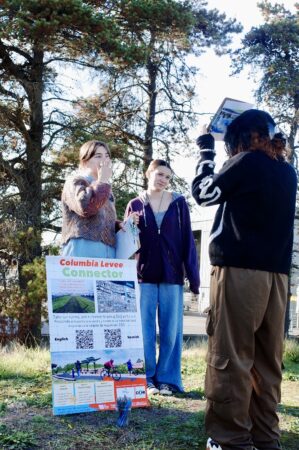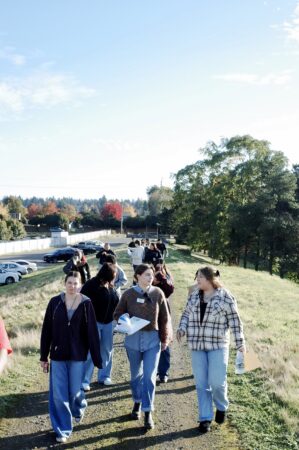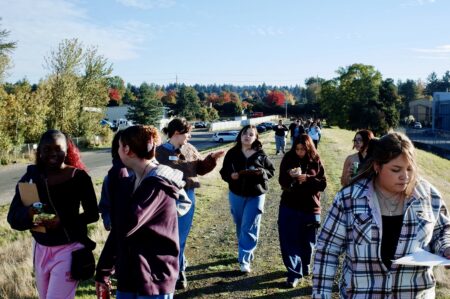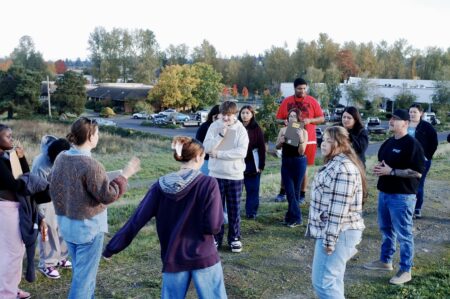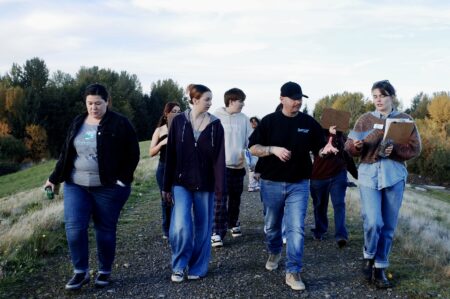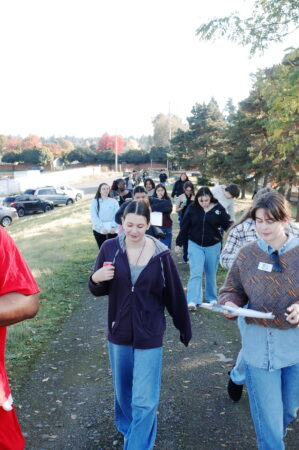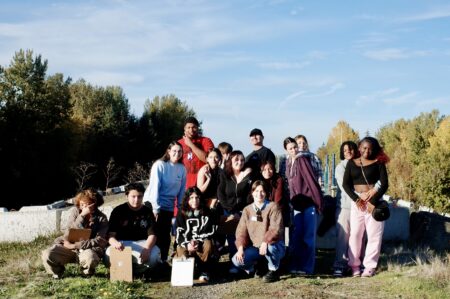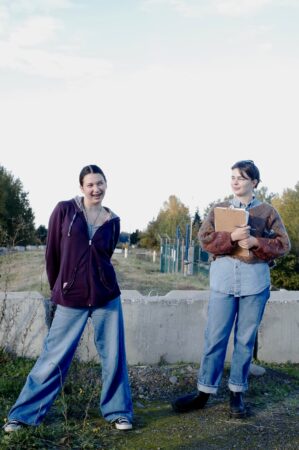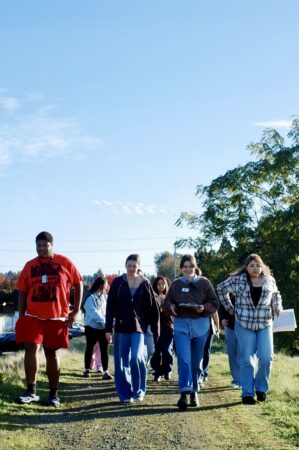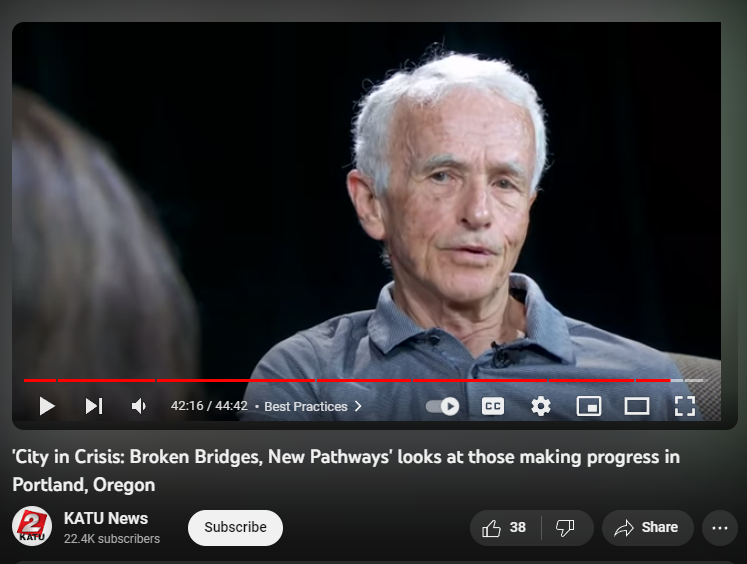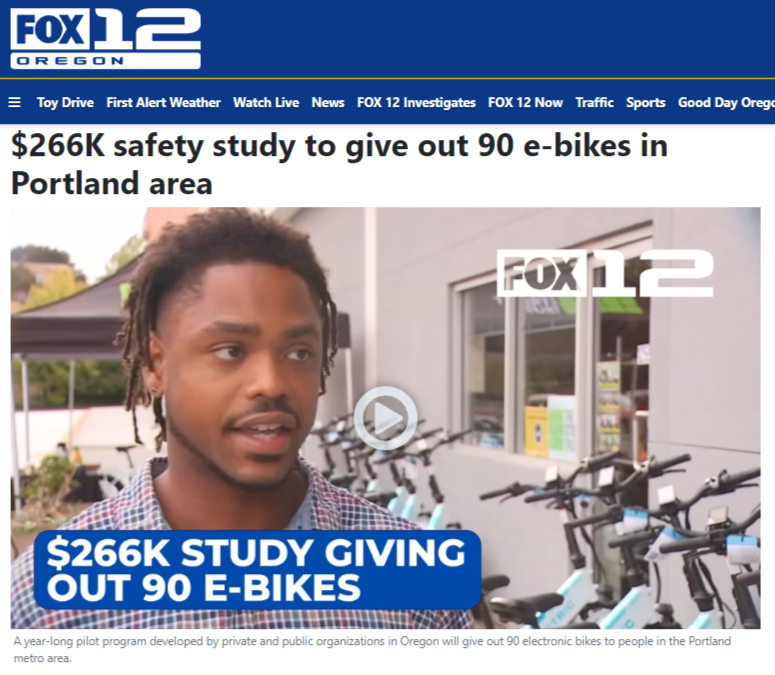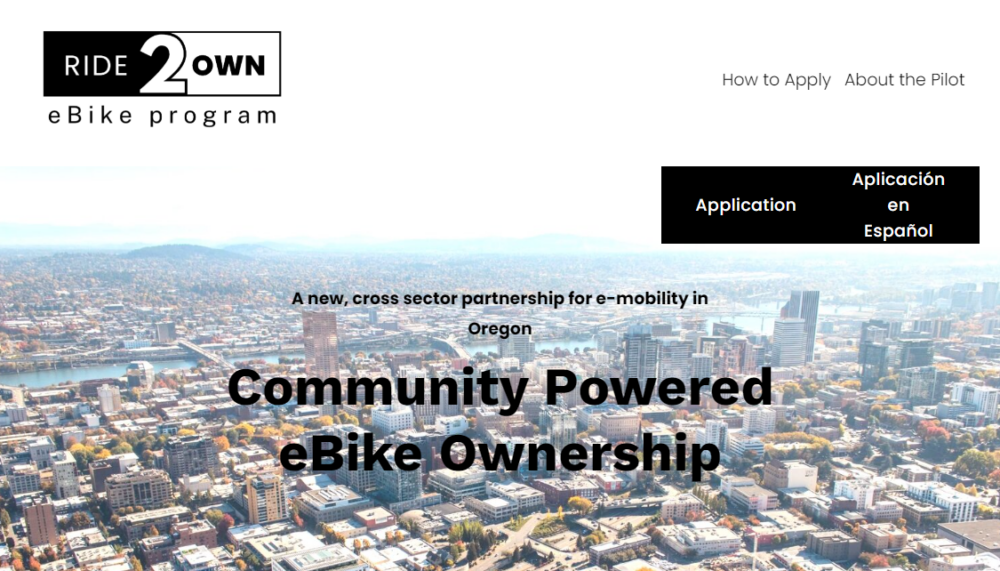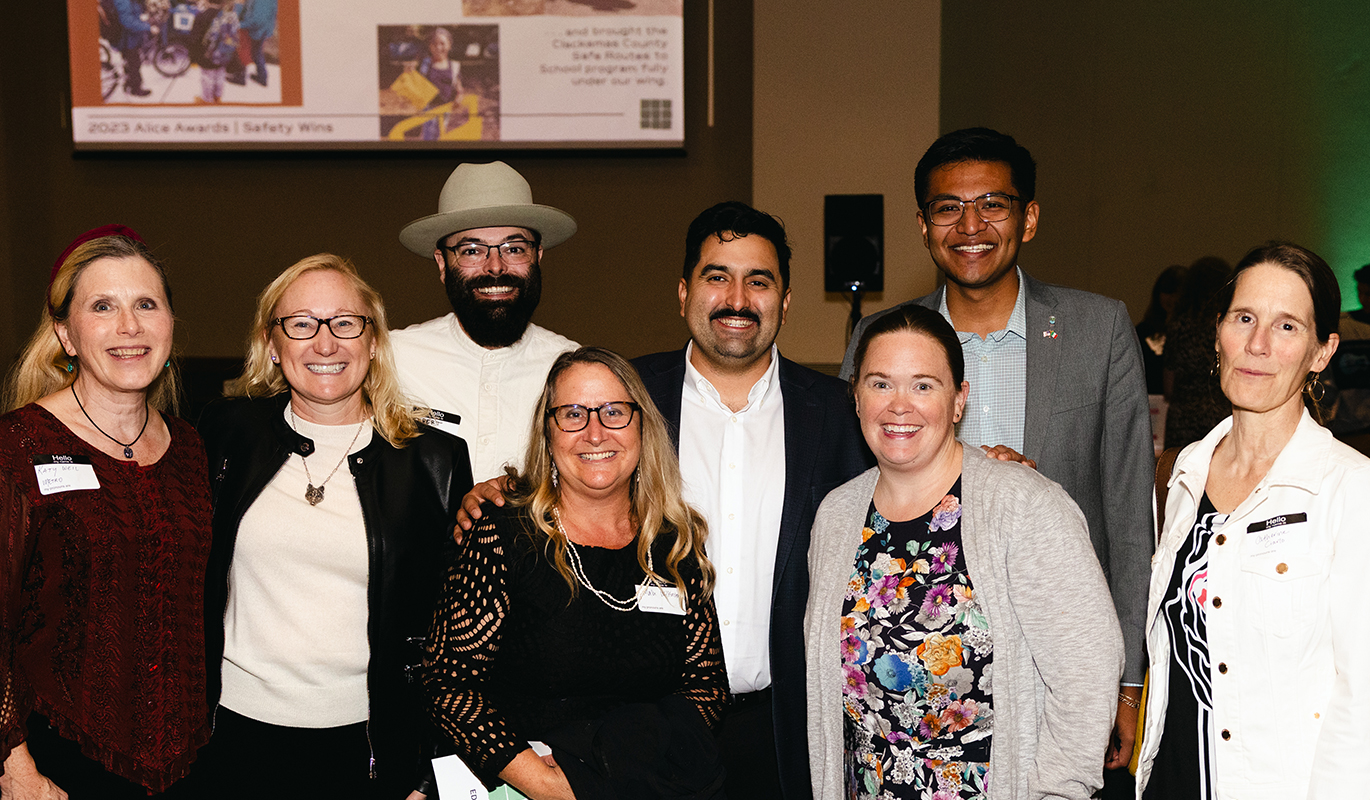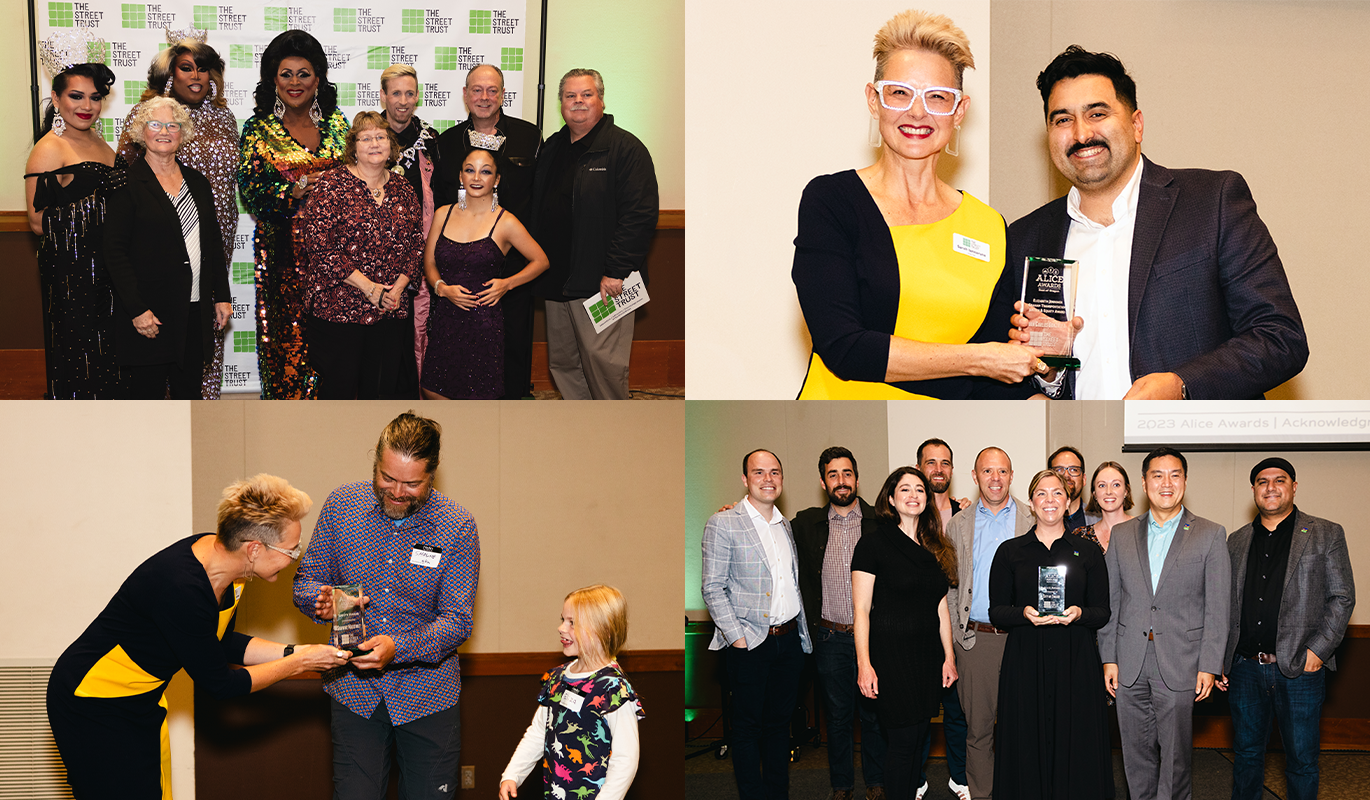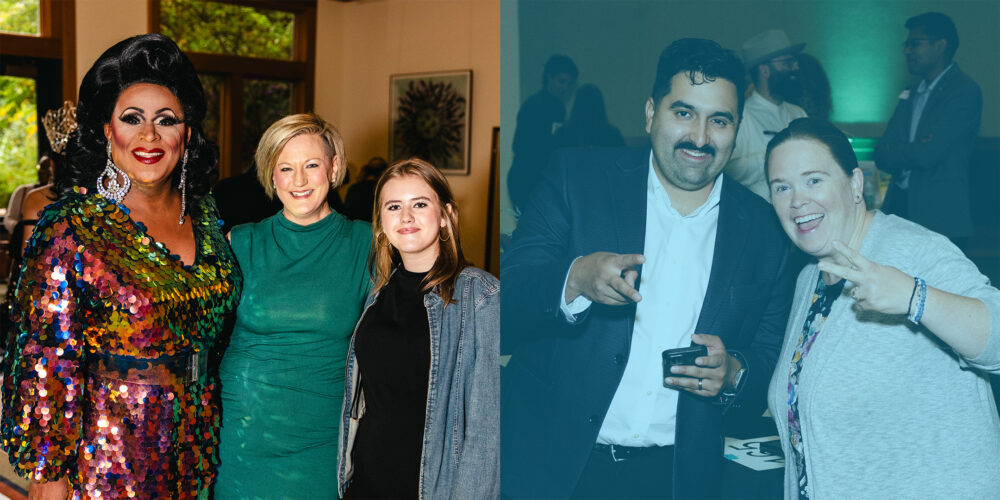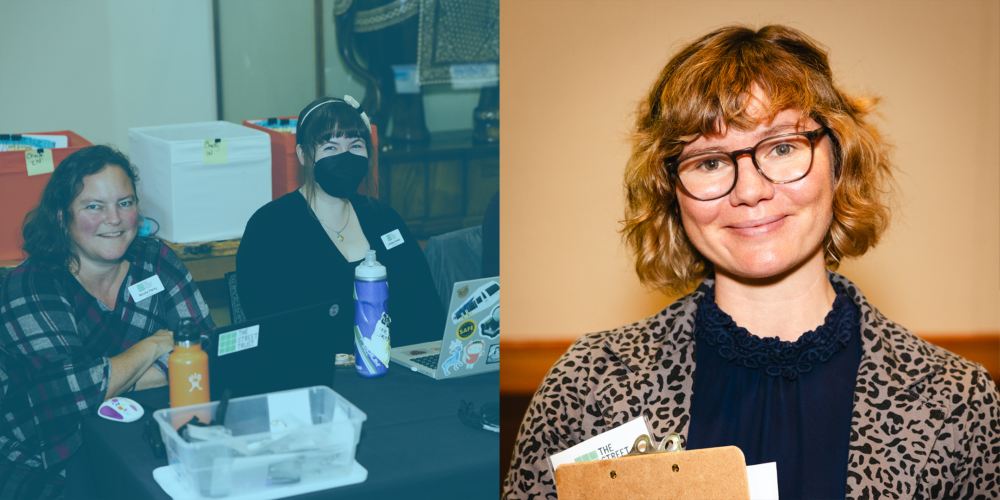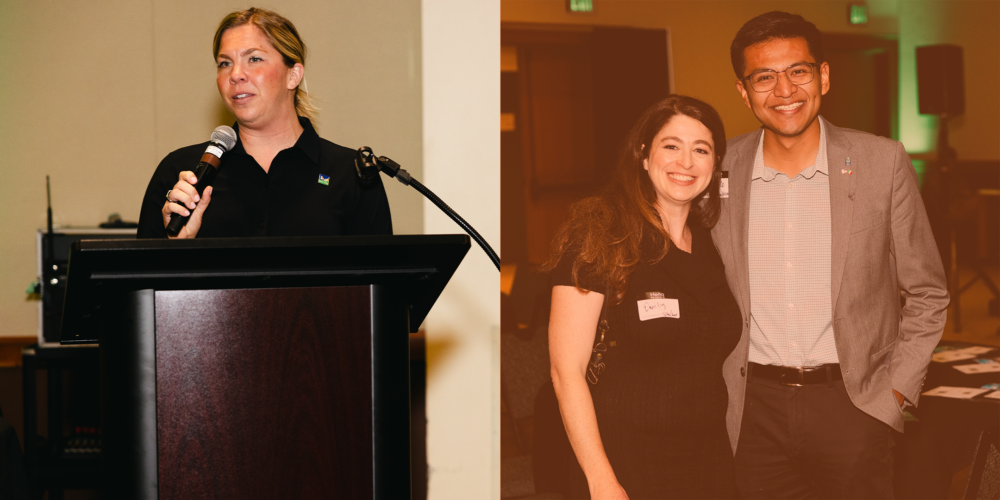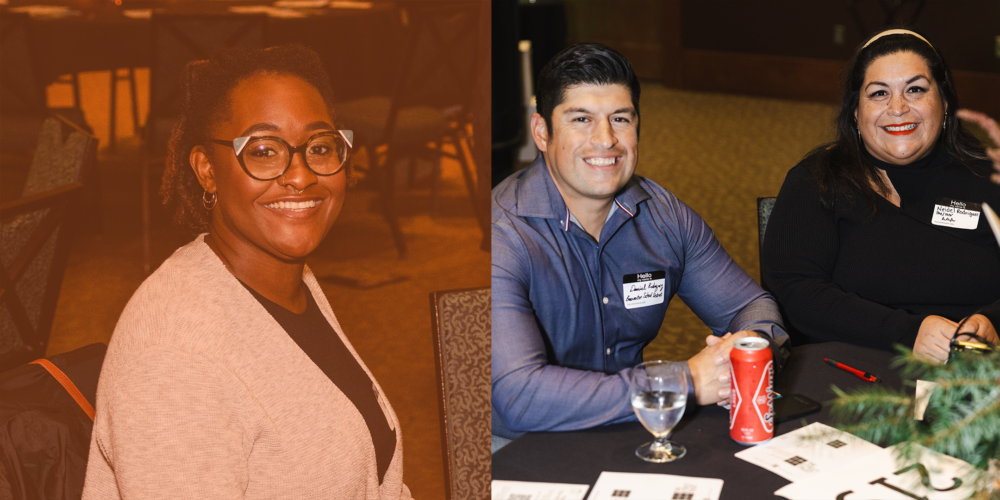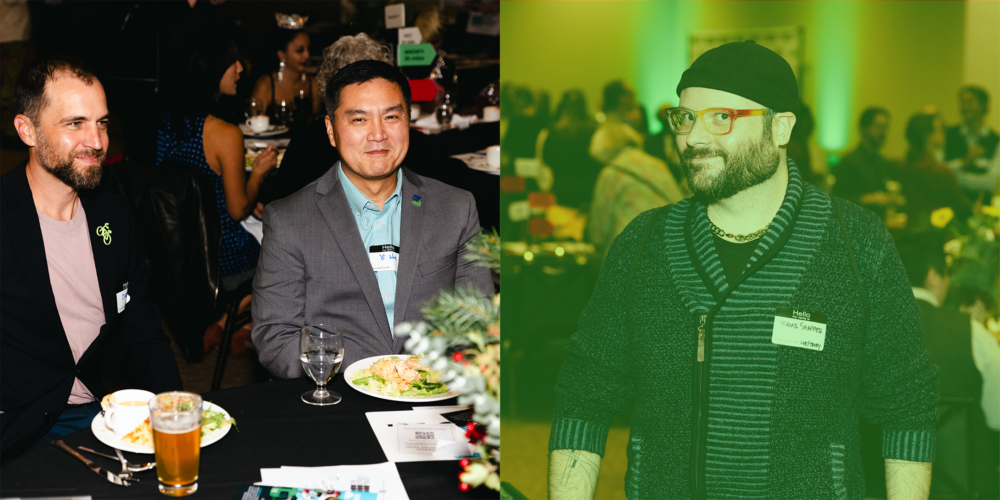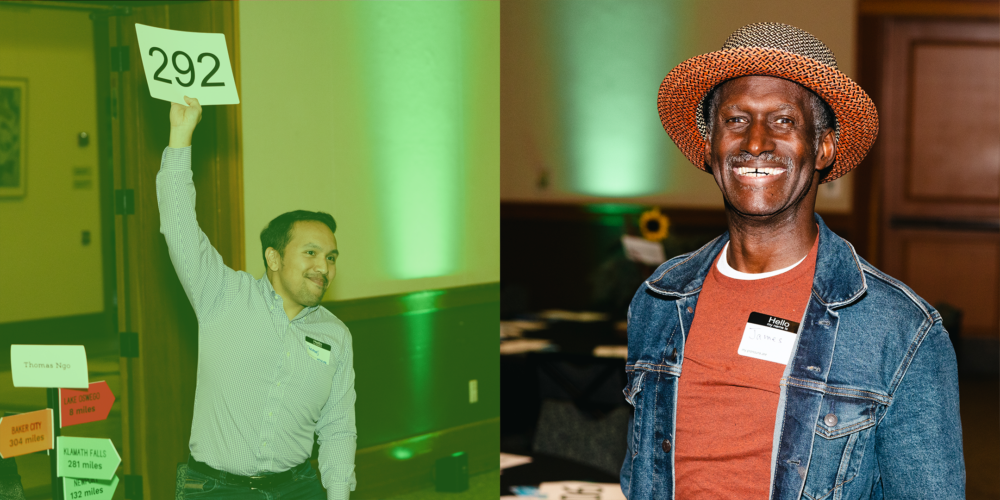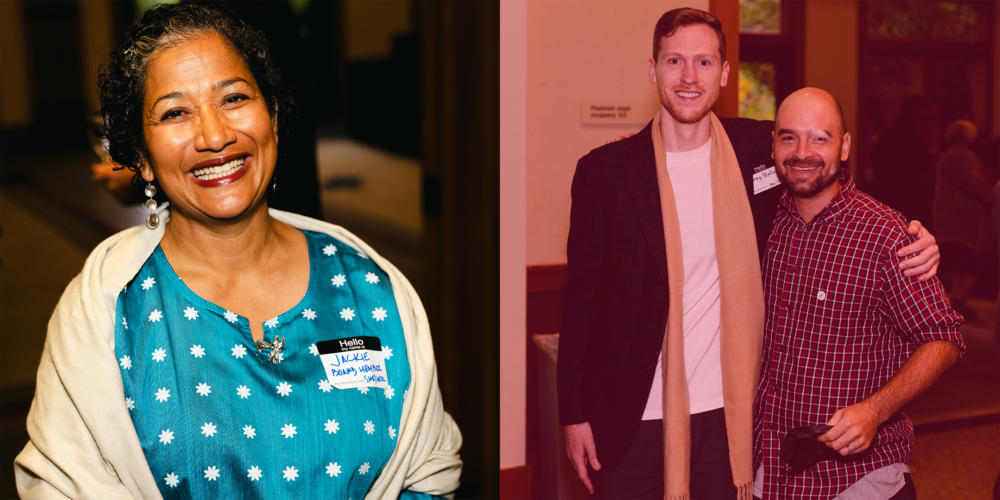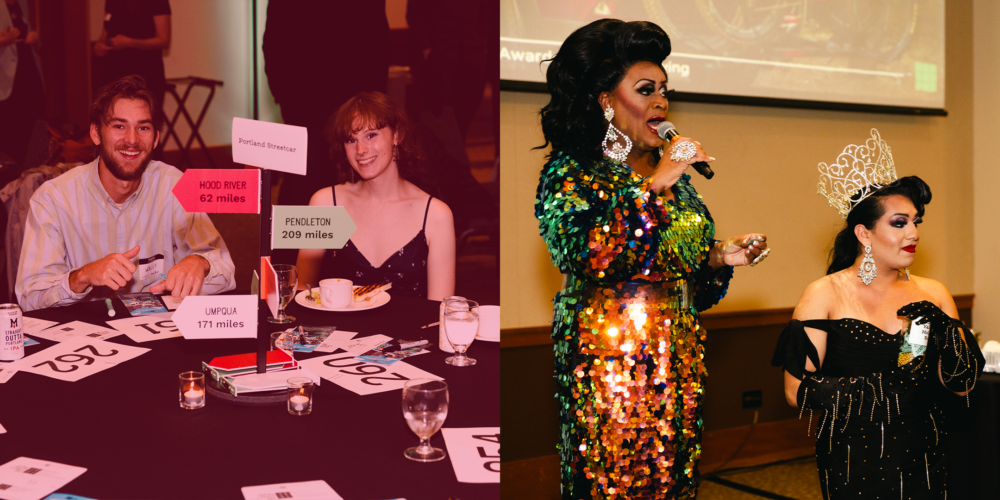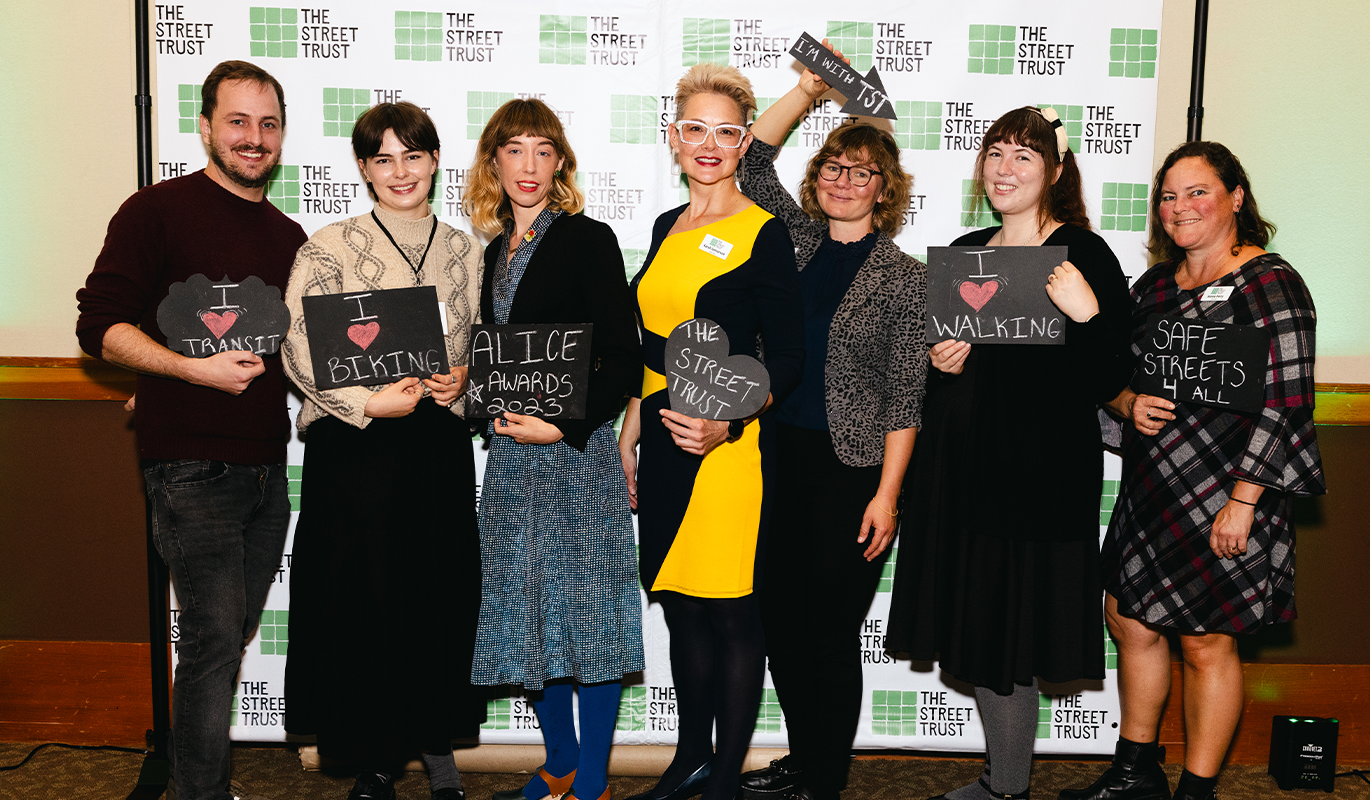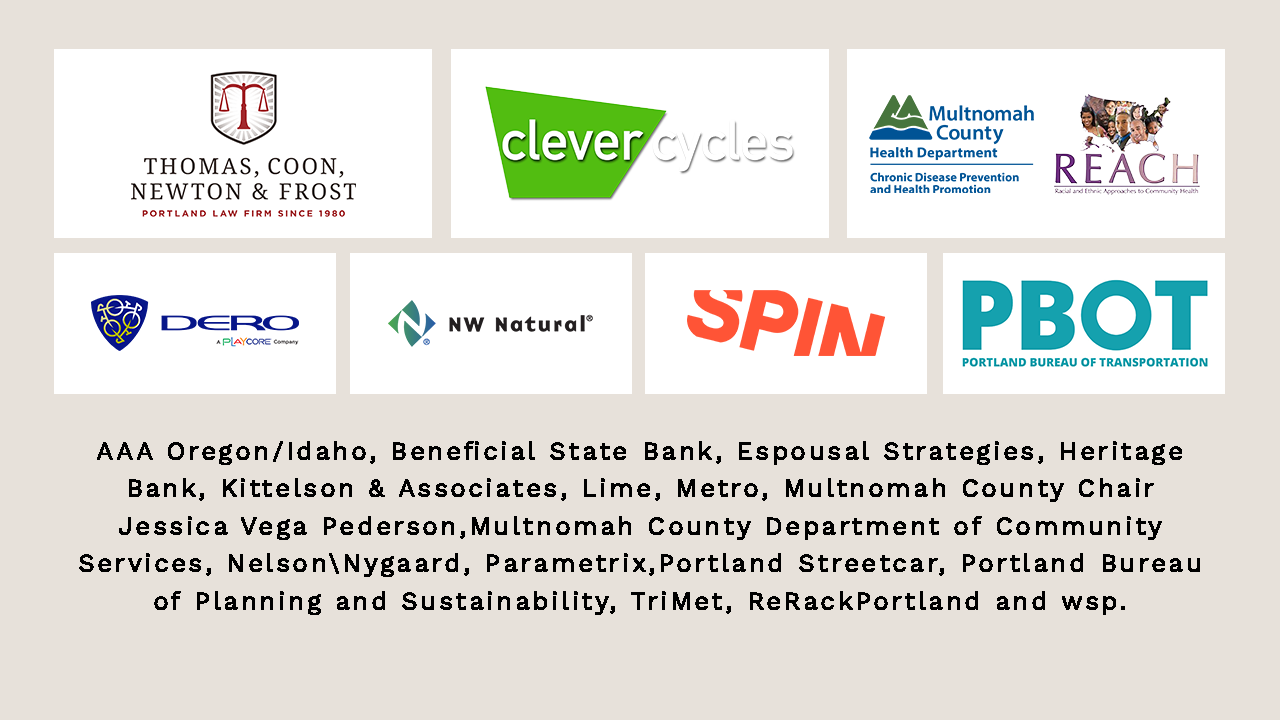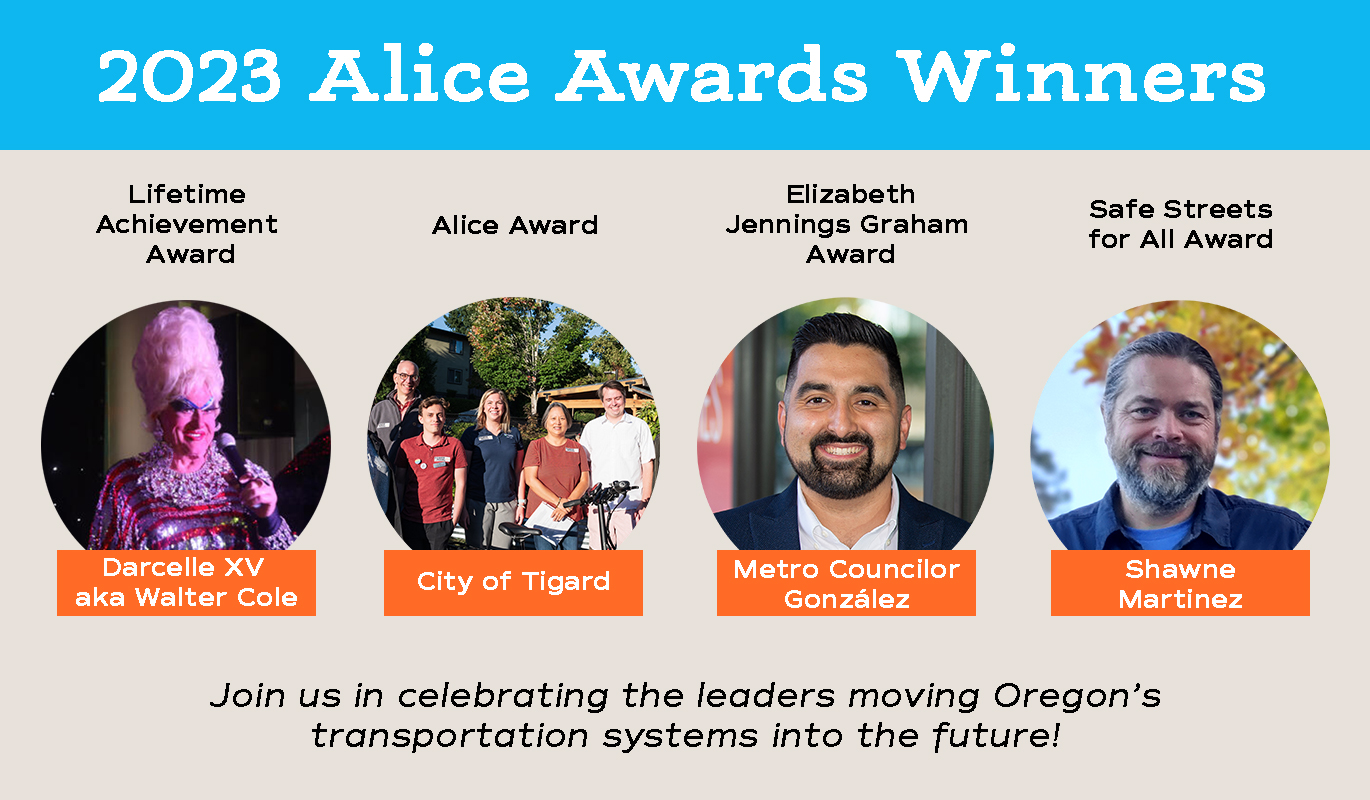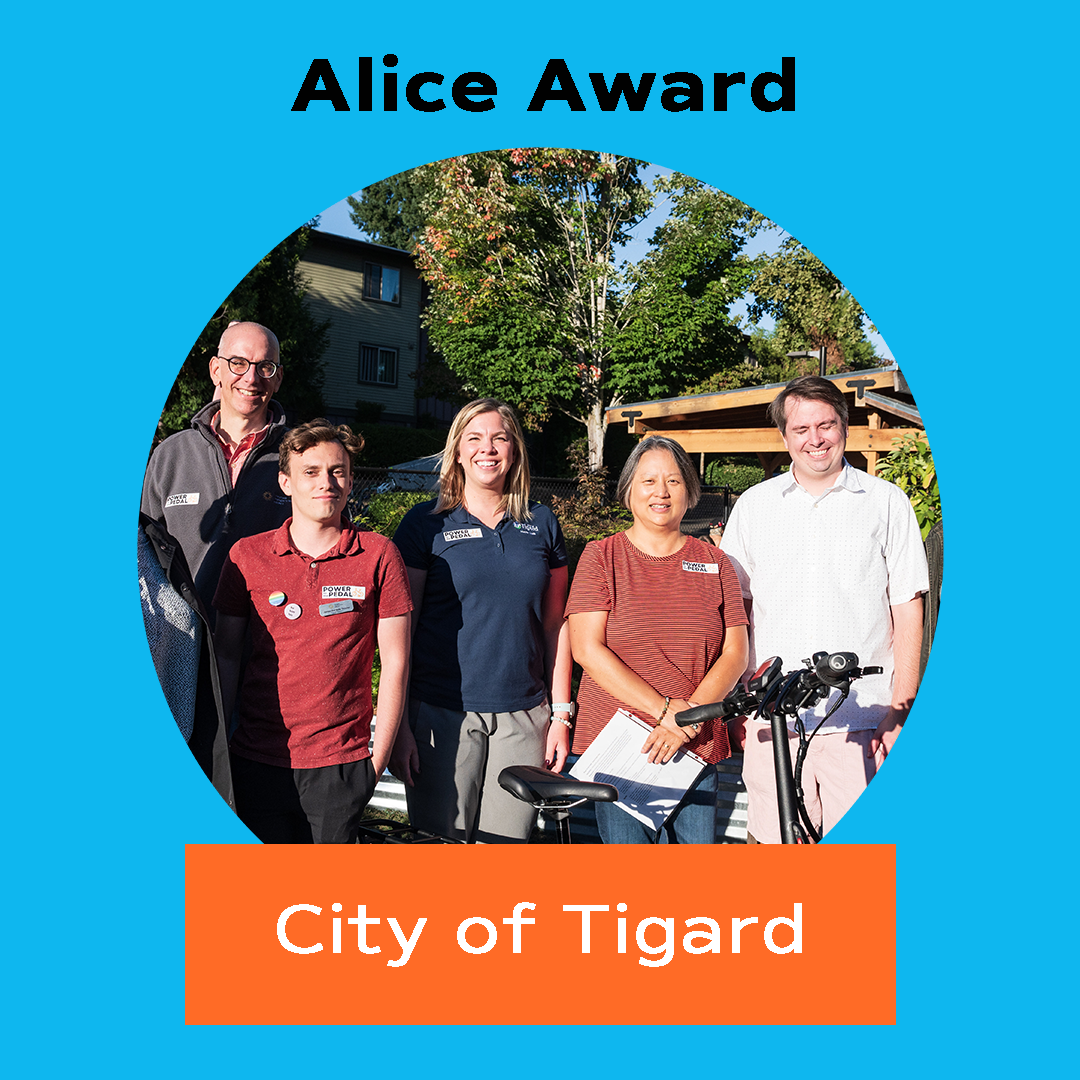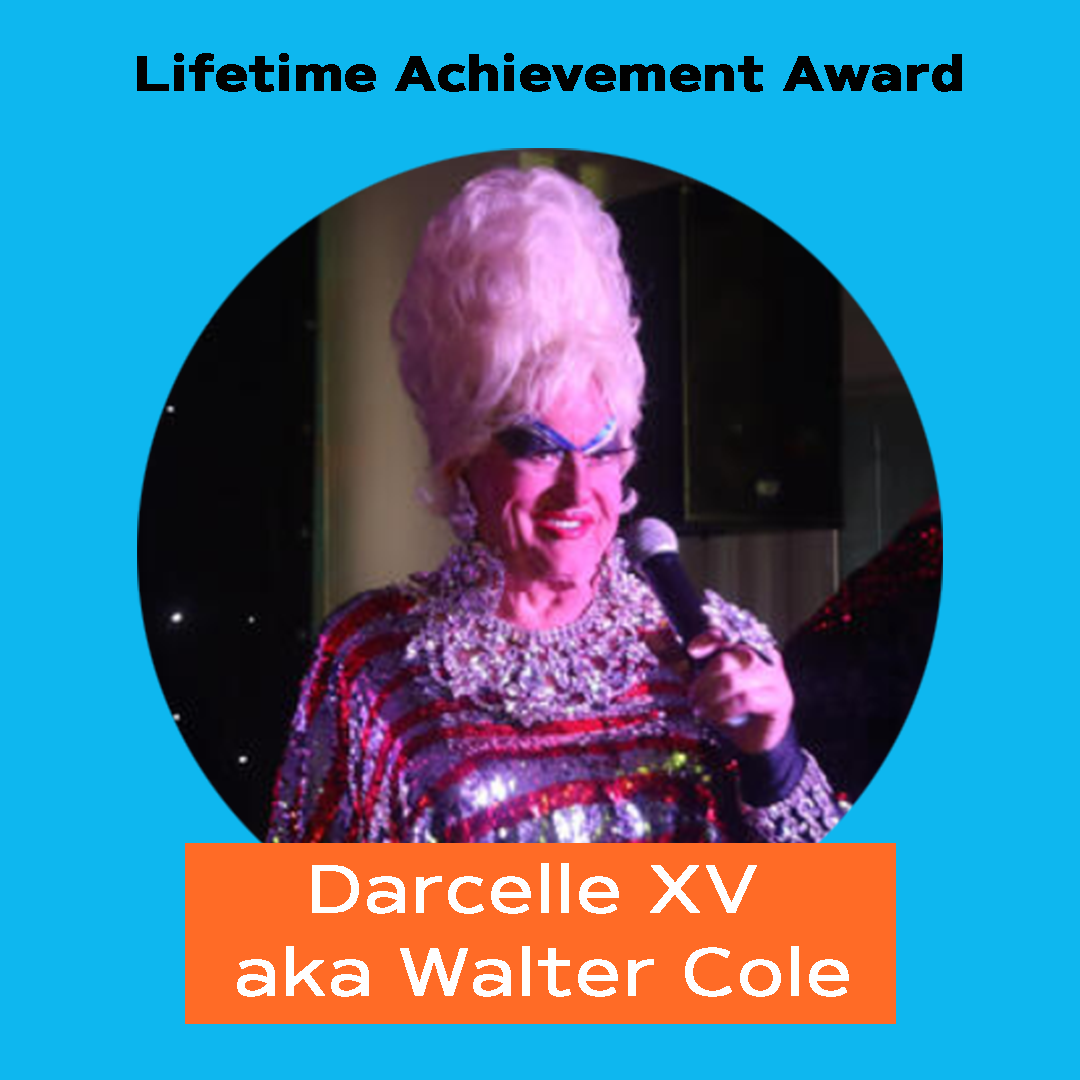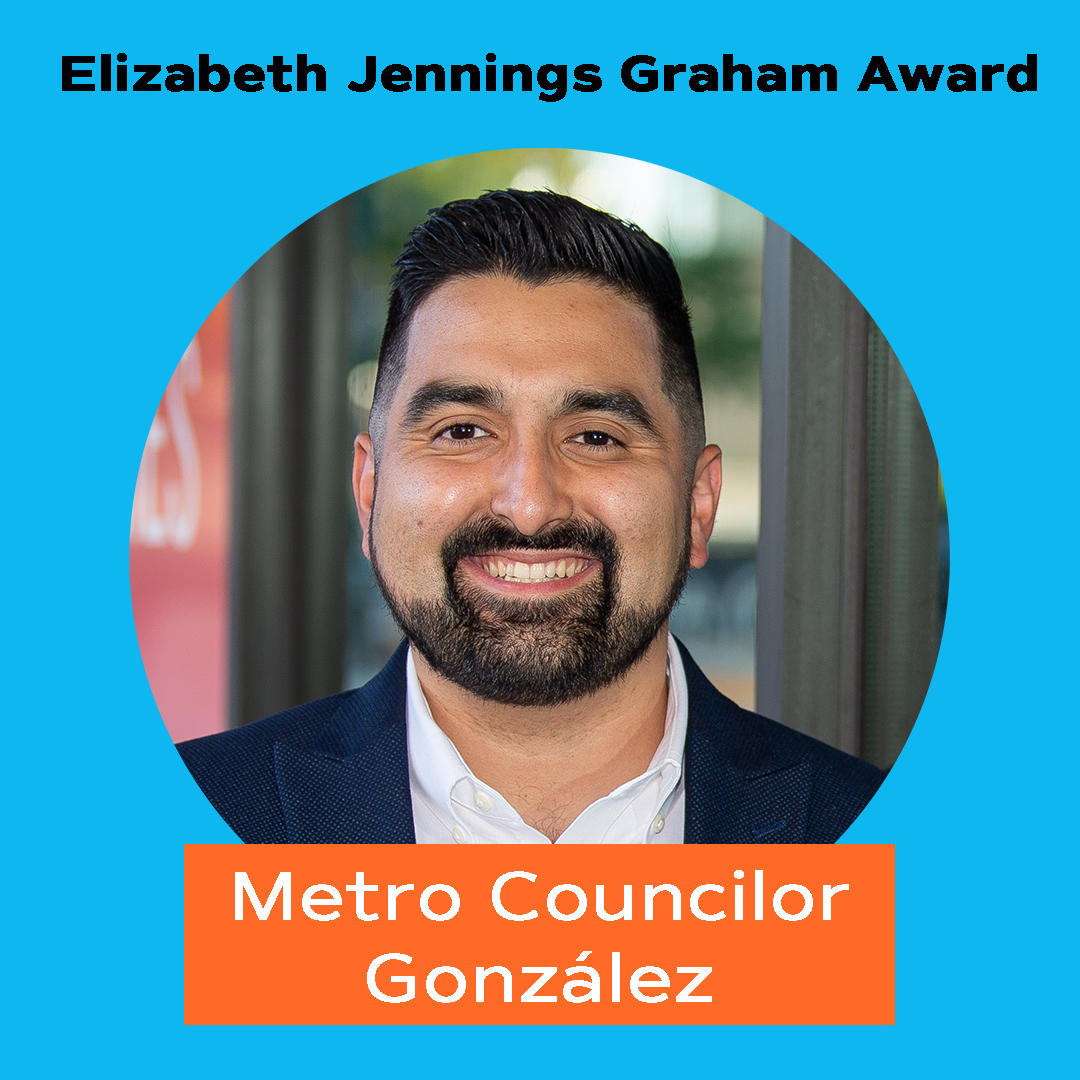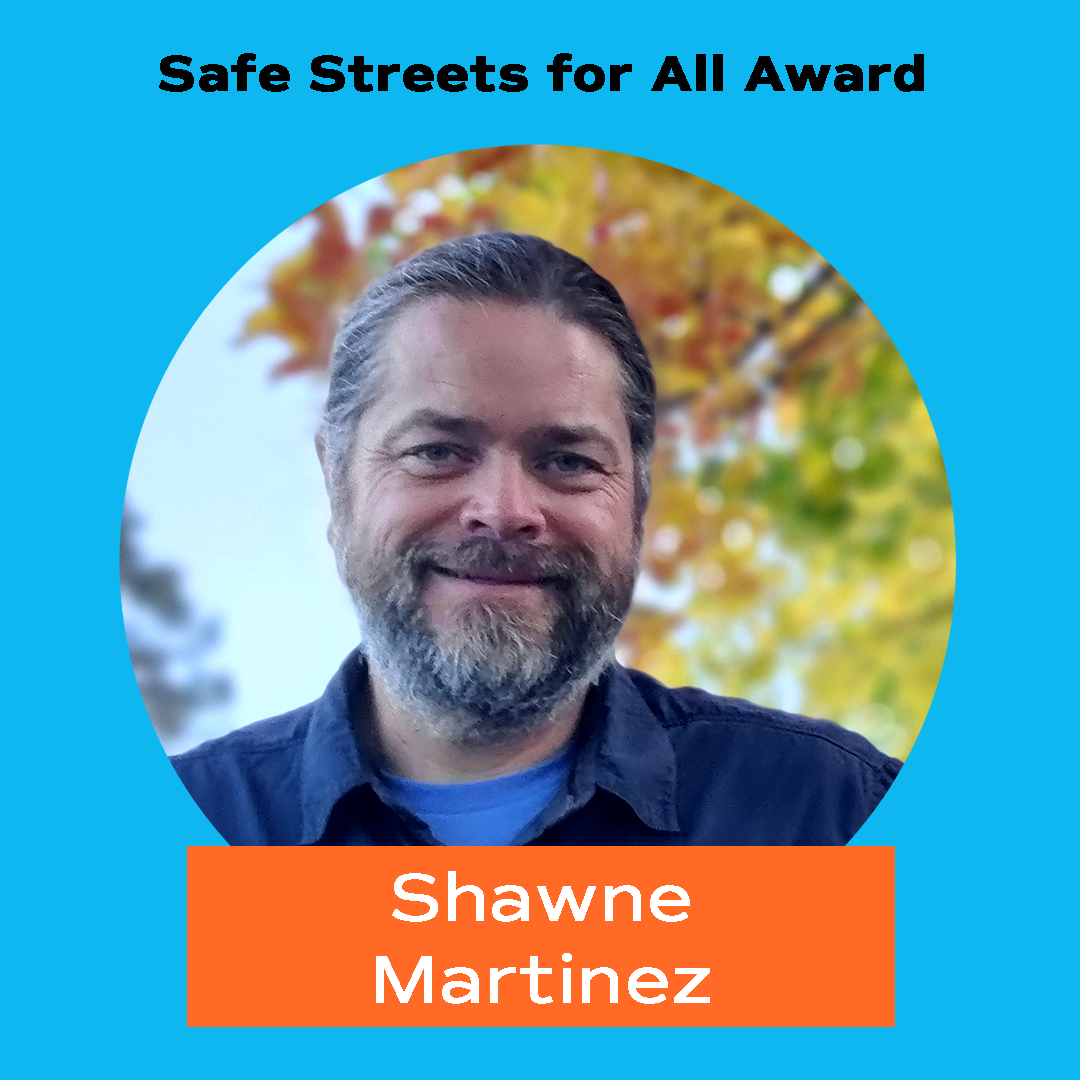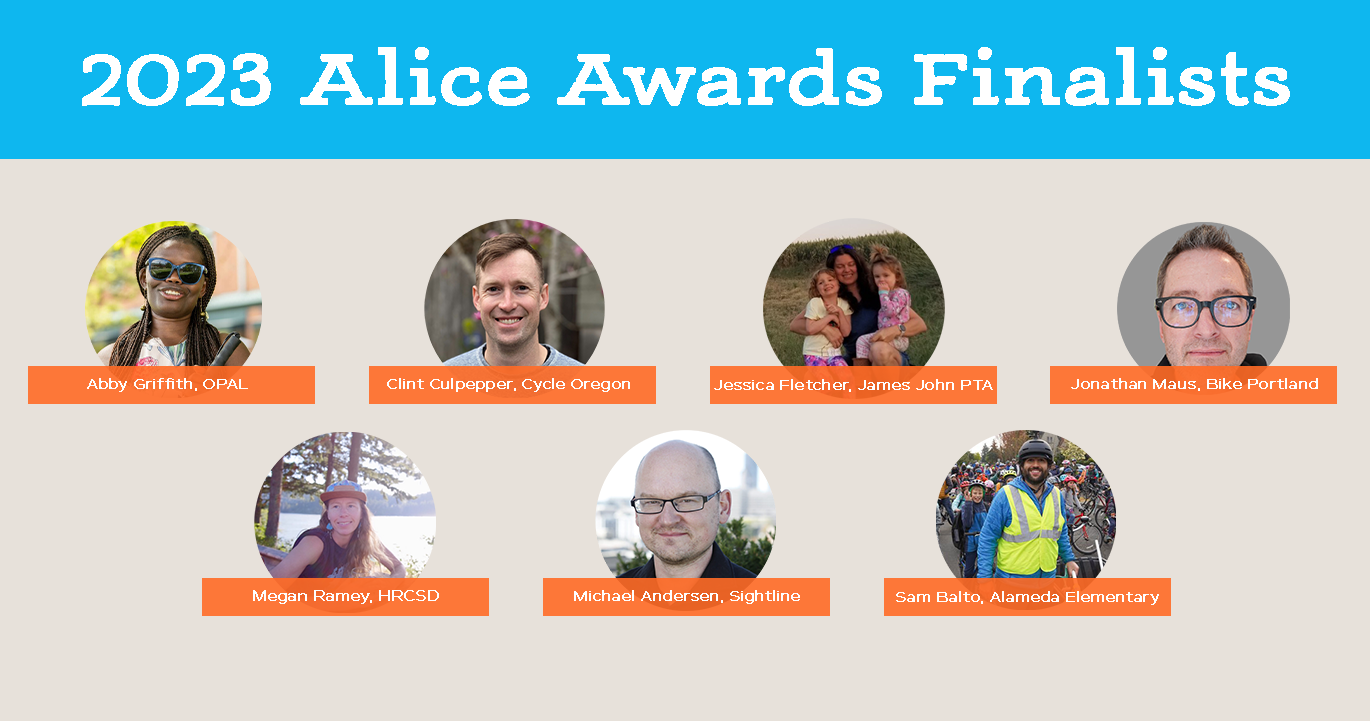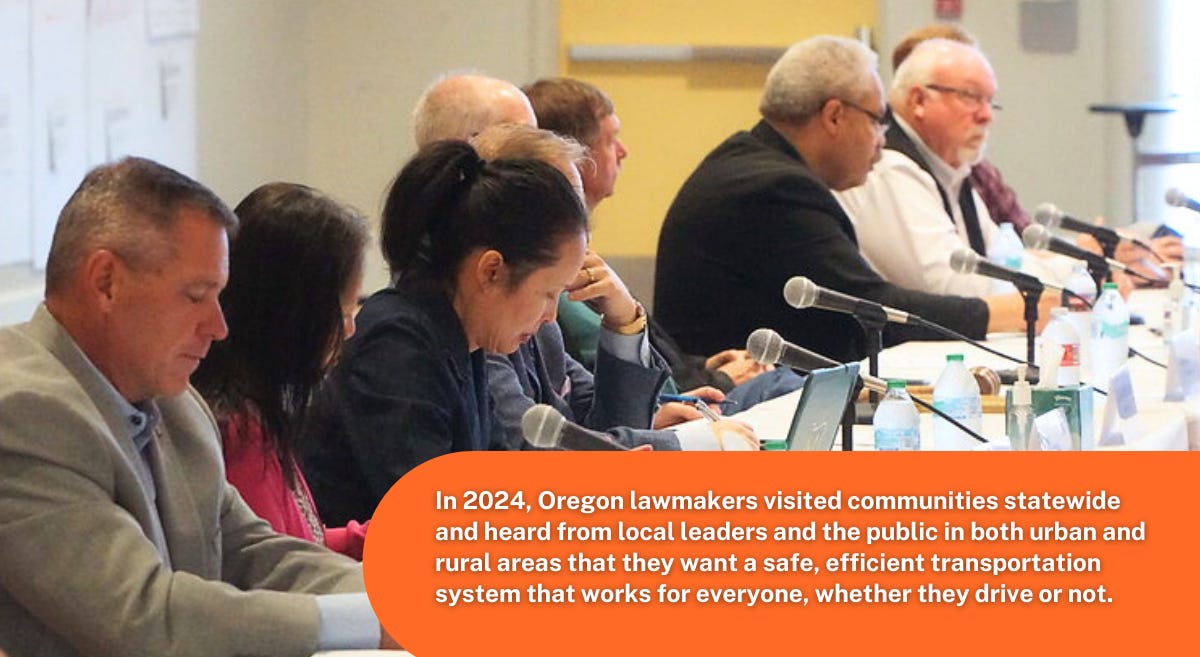
2025’s Context
Lawmakers are making transportation a priority, despite competition with other major issues like housing, healthcare, and education. House Speaker Julie Fahey (D-14) even kicked off the session by gifting wooden cars, trains, trucks, and boats to representatives to underline the urgency of transportation issues.
As advocates, The Street Trust’s job this session is prioritizing the core elements of a transportation system that meets the everyday needs of all users, not just people who drive. That’s why we are focused on “reclaiming the basics” to create an equitable, accessible, and efficient transportation system for all Oregonians. So in addition to funding system maintenance like paving potholes, we’re championing:
- Adequate funding for complete sidewalks and bikeways
- Transforming Orphan Highways into vibrant Main Streets
- Ensuring everyone has access to safe public transit that runs on time.
During the last transportation package HB 2017, The Street Trust achieved historic amounts of funding for Safe Routes to School and public transit.
📝 Pro-tip: Bookmark The Street Trust’s Bill Tracker here to follow key transportation-related legislation. We’ll update it as the session progresses and keep you informed on critical opportunities to advocate for or against specific bills that impact transportation and our community.
How We Win in this Political Environment
The recent history of walkouts means that failing to gain minority support can stall progress. It’s also true that a Democratic majority does not equal a clear path to victory. We still need to win over Democrats in fiscally conservative or purple districts.
Those who benefit from maintaining the status quo may be banking on these divisions to derail the session. The risk of not achieving a transportation package is very real.
Local efforts to expand bike lanes and bus service often encounter resistance from these lawmakers, but the opposition isn’t solely rooted in partisanship. Geography plays a key role, and the politics of transportation often follow the urban-rural divide. Many Oregon legislators represent more rural areas where shopping streets do double duty as freight routes, public transit may be less cost-efficient to operate, and safe access to schools or services without a car can seem impossible.
There’s a saying that transportation isn’t politically red or blue, but grey like asphalt, concrete, and steel. At The Street Trust, we take this one step further: investing in transportation system is green — good for our economy and good for the environment.
From years of research, we know that, regardless of geography or political affiliation, both household and state budgets benefit from investments in public transit, active transportation, and maintenance and operations, like filling potholes and plowing roads.
To reach our goals this session, we must demonstrate that a sustainable transportation system can bridge the urban-rural divide and transcend party lines for the betterment of all Oregonians. By focusing on our values shared across the aisle — safety, affordability, resiliency, and economic opportunity — we can achieve broad, bipartisan support in Salem.
So how do we build the political power to win?
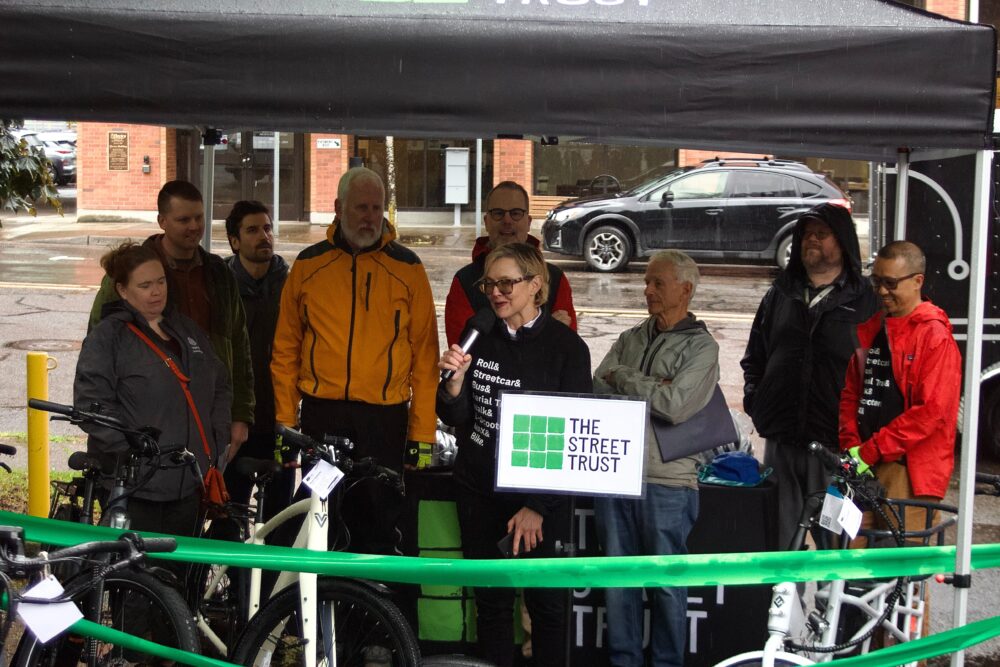
Our Three Pillars for Success
1. Defending & Growing Investments in Safe Streets for All & Transit that Works
2. Finding the Courage to Innovate
3. Convening and Communicating Toward Common Ground
We are at a critical moment for our transportation future. The stakes could not be higher for us and for future Oregonians. Oregon needs a long-term investment strategy to preserve and modernize our transportation infrastructure now, while prioritizing holistic maintenance that supports all modes of travel.
The relationships, coalitions, and strategies we’ve built can help get transportation legislation that works for everyone funded and across the finish line, despite the many potential obstacles. This will require targeted prioritization, spending flexibility in partnership with local governments, and likely, dedicated revenue mechanisms for broadly popular programs like Safe Routes to School, which are in high demand and consistently underfunded.
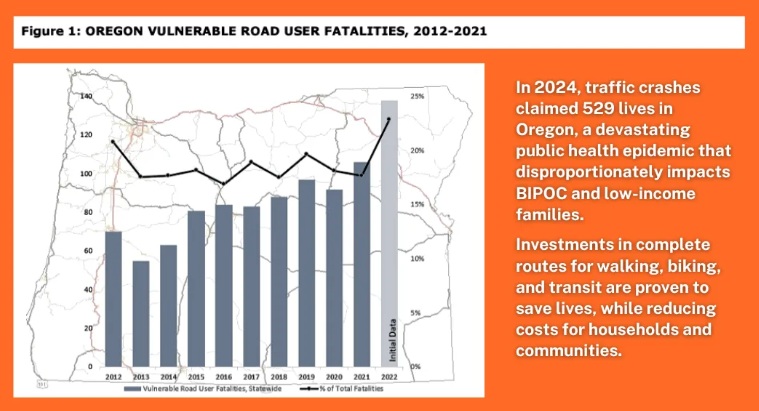
Pillar #1: Defending & Growing Investments in Safe Streets for All & Transit that Works
We need to fiercely defend broadly popular programs that prevent crashes — without allowing internal or partisan divides to distract us from our common goals. That’s why we are committed to fully funding:
- Safe Routes to School
- Great Streets
- Oregon Community Paths, and
- The Statewide Transportation Improvement Fund (STIF) investments in the 2025 Transportation Package.
For the past two years, The Street Trust has been setting the table to make these investments happen by chairing the state’s Jurisdictional Transfer Advisory Committee, or JTAC, established through Majority Leader Ben Bowman’s (D-25) leadership in passing HB 2793 in 2023. Through collaboration with statewide partners in JTAC, we helped create fair and objective criteria for improving “Orphan Highways,” some of Oregon’s deadliest arterials, across urban and rural communities
This led to the creation of HB 2161, which prioritizes the transfer of Hall Boulevard to the City of Tigard and a portion of the Hood River Highway to the City of Hood River. Recognizing that many jurisdictions can’t take on Orphan Highway projects without sufficient funding, we are also working with Rep. Rob Nosse (D-42) to secure $30 million for additional safety improvements to Inner Powell Blvd in Portland (currently LC 4111, soon to be assigned a bill number).
While bike lanes can be highly polarizing, our extensive participation in the statewide public listening tour, leadership roundtables, and legislative working groups in 2024 confirmed that:
Urban or rural, red or blue, investments in safety programs and vibrant main streets are universally popular across all legislative districts, and can enjoy broad bipartisan support in Salem.`
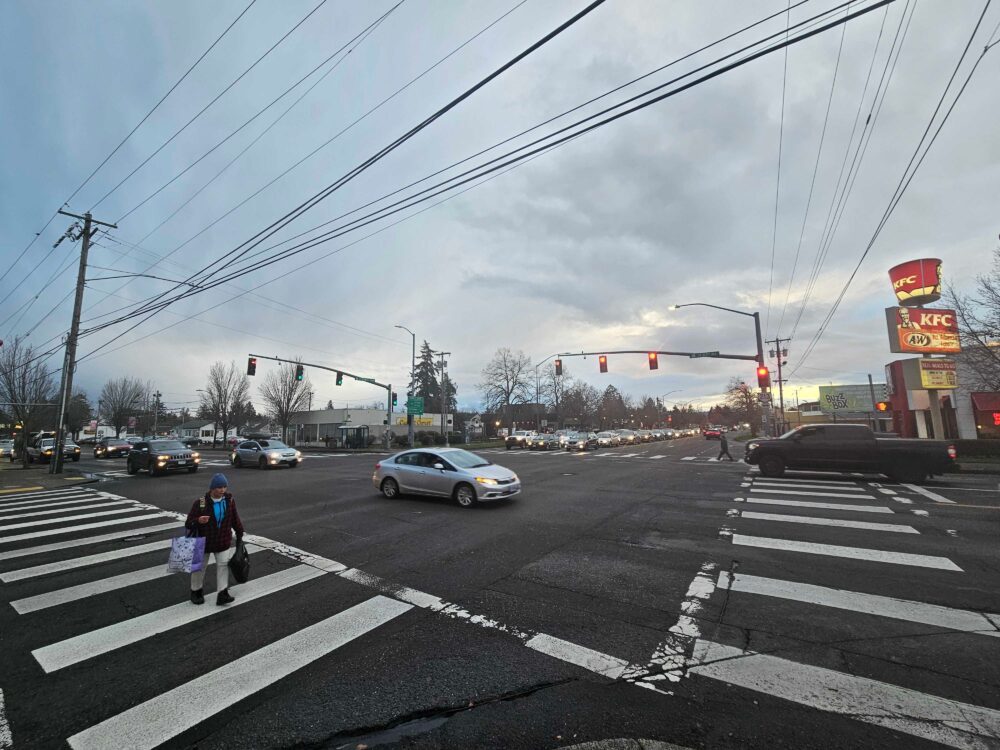
Pillar #2. Finding the Courage to Innovate
Next month, we’ll take a deep dive into the various revenue streams under discussion for the 2025 package and unpack the Highway Cost Allocation Study (HCAS). Public policy doesn’t get more complicated than HCAS! Fortunately, The Street Trust sits on the HCAS team and can break down how it works and why it is so critical to this session.
We want to ensure that all road users contribute equitably, while prioritizing investments in multimodal infrastructure and system maintenance, but it’s going to be a heavy lift. To advance innovative solutions, we will need to stay laser-focused on:
- Clearly breaking down costs and funding sources like local taxes, fees, federal grants, and tolling (if implemented) to build public trust and long-term understanding.
- Reliable data and modeling to demonstrate how each project will improve safety, reduce congestion, and boost economic development in specific communities.
- Educating the public on how highway projects compare to multimodal alternatives like transit improvements to foster a deeper understanding of Oregon’s priorities and decision-making process (and in turn, help build the broad support needed to move transportation systems forward).
As the session unfolds, transportation revenue options are where the rubber is going to hit the road. Democrats are going to need to avoid unilateral action, while Republicans will have to abandon obstructive tactics like walkouts to get this package done. Despite the challenges, The Street Trust will do everything we can to support legislators in crafting policies that benefit the entire state, lead us into a prosperous future, and stand the test of time.
Pillar #3. Convening and Communicating Toward Common Ground
That’s why we helped revitalize the Oregon Micromobility Network (OMN). Formerly the E-Bikes for All working group, we convened experts, manufacturers, advocates and riders in a single statewide network to craft sensible, enforceable e-bike legislation. After collaborating with lawmakers and state agencies over the summer, we’re currently tracking and revising several key pieces of e-bike and micromobility legislation. Stay tuned for our next edition of On The Move where we’ll provide a detailed update from the group.
📝 Pro-tip: Sign up for the OMN mailing list here to stay up-to-date on the bills they are refining and to get urgent calls-to-action.
To build the political power needed to win a transportation package that works for all Oregonians, we’ve also been holding conversations, conducting research, and working with advocacy groups since the summer of 2023, resulting in the Move Oregon Forward campaign.
Powered by over 40 active transportation, climate, labor, and environmental justice organizations from across the state, we mobilized turnout for public testimony at this past summer’s statewide listening session, identified community leaders for roundtable discussions, and secured a significant number of seats on three statewide legislative working groups shaping the transportation package (Operations & Maintenance, Public & Active Transportation, and HB2017 Commitments/Megaprojects).
Together, we’re advancing a safety first and climate forward agenda for the legislature.If you or your organization would like to endorse the Move Oregon Forward campaign, please complete this interest form.
What’s Next and How to Help Move Oregon Forward
The first draft of the 2025 transportation package is scheduled to drop just before The Street Trust’s 2025 Oregon Active Transportation SUmmit (OATS) creating a pivotal opportunity for advocates, policymakers, and community leaders to convene and work together.
More than a celebration of our shared vision, the year’s OATS will provide a strategic space to hear from stakeholders and coalitions, tackle challenges, build consensus, and turn shared goals into actionable solutions, forging the power needed to secure a transportation package that works for all Oregonians.
You can submit proposals here for workshops, presentations, panel discussions, mobile workshops, and study tours at OATS through February 14th. We hope you’ll join us!
Beyond hosting a working summit, the next few months are going to be a busy! Sign up for email updates here and follow us on Bluesky to stay informed and take action when it matters most. Let’s work together to shape an equitable, accessible, and resilient transportation system that works for all Oregonians.
What’s Next? We’ll cover the details of the Oregon Micromobility Network and proposed E-Bike Legislation.
P.S. We need your support to continue this transformative advocacy work. Please join us as a member of The Street Trust here. You’ll get discounts, free entry to community events, and insider updates on the legislative session. Thank you!

